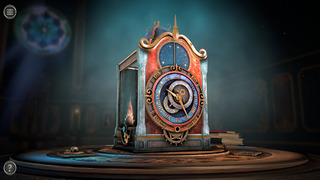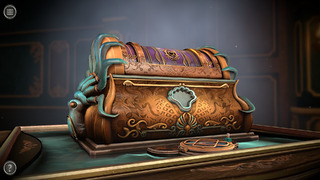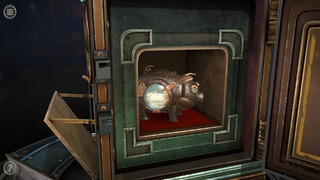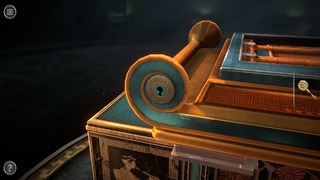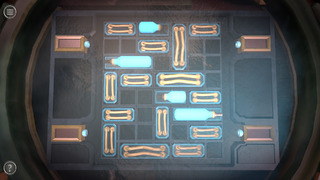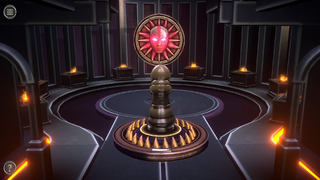The puzzle game genre based on mystery boxes is a particular genre of thinking game whose most famous representatives are called The Room or The House of Da Vinci. And then, there are the new guys who are trying to make their mark, like Big Loop Studios with this Boxes: Lost Fragments whose inspiration is perhaps a little too obvious.
Caught in the box
Boxes belongs to a game genre whose scenarios are often minimalist. Big Loop Studio's game is no exception. We are a thief responsible for an ordinary theft in a sumptuous deserted mansion. However, as soon as the coveted object is in our hands, the trap closes on us. To get out, we will have to use our brains and our sense of observation to unravel the secrets of around twenty boxes whose origin and usefulness are a mystery. The few story elements that the game wants to give us are introduced by means of letters scattered here and there in the levels, as is the genre. I'm not going to lie to you, I very much doubt that the scenario will leave you speechless. We're not here for that anyway.
Advertisement
We all start somewhere
From the first moments, Boxes reminds us of The Room, surely the best-known representative of this type of game. The two games in fact share the same type of presentation, with its central hub opening a path to a single room. In each of these rooms, we are placed in front of a box that we can observe in detail. The game is played entirely with the mouse and its presentation based on fixed shots makes it easy to learn. A left click of the mouse allows us to zoom in on a specific area of the box and interact with certain elements while the right click allows us to move back until we have an overview. The main part of the game therefore consists of discovering how to interact with the different faces of the box. The operating mode of the different levels is always approximately the same. We find the only side of the box with which we have possibilities of interactions, which gives us an object which will allow us to interact with another side and so on. Nothing very original. Sometimes you will have to open your eyes to notice the small, well-hidden elements lying around on one or the other box, such as a button here or a switch there. There is also a small inventory on the side of the screen, but nothing inventive on this side. The objects found are either usable as is, or must be modified in the same way as the elements in the box.
That said, a big part of the appeal of this type of game lies in balancing the difficulty of the puzzles. And on this point, I have to say that Boxes: The Lost Fragments disappointed me. Of course, I've been playing so many puzzle games for years that it becomes difficult to come up with a puzzle that doesn't have a taste of déjà vu. This is the case here too and we sometimes even find the same kind of enigma on different boxes. But that's not my main concern. Too many of the game's puzzles have a level ridiculously low difficulty. A puzzle that asks you to line up two pieces with the same symbol has no difficulty if you can move the pieces one by one. It requires patience yes, but no logic. Likewise, far too many puzzles left me feeling like the solution had been barely concealed. Hence a practically non-existent difficulty throughout the game. And if, despite everything, you manage to get stuck, the game offers a system of clues which goes so far as to allow you to skip the enigma. The lifespan is affected since you have to play between 3 and 4 hours to complete the game.
A box to take or leave?
In itself, Boxes: The Lost Fragments is not a bad game. It meets the specifications of this type of game, right down to its fishtail ending which announces a second episode. But he fills this notebook without panache with a difficulty that will be far too low for aficionados.
Test carried out by Grim on PC using a version provided by the publisher.
